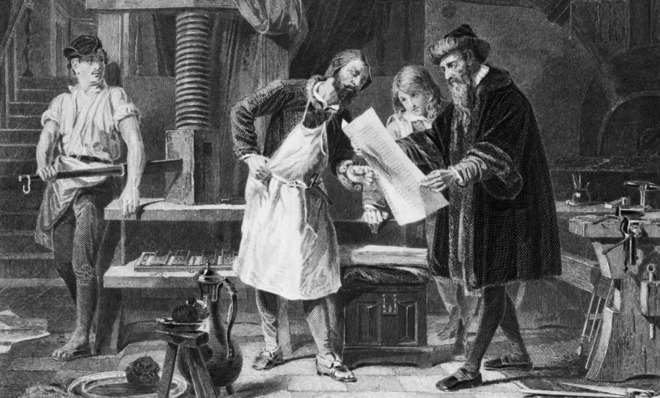The five skills of disruptive innovators
Most of us believe that the ability to think creatively is genetic. It's not.

A free daily email with the biggest news stories of the day – and the best features from TheWeek.com
You are now subscribed
Your newsletter sign-up was successful

In The Innovator's DNA: Mastering the Five Skills of Disruptive Innovators, authors Jeffrey Dyer, Hal Gregersen, and Clayton Christensen uncover the origins of "innovative-and often disruptive-business ideas," saying "we found that innovators 'Think Different,' to use a well-known Apple slogan."
In fact, the ability to look at problems in a non-standard way might be the most sought after competency of the future. And while most of us believe that the ability to think creatively is genetic, it's not, the authors say.
Most of us believe that some people, like (Steve) Jobs, are simply born with creative genes, while others are not. Innovators are supposedly right brained, meaning that they are genetically endowed with creative abilities. The rest of us are left brained — logical, linear thinkers, with little or no ability to think creatively. … (You're wrong!) At least within the realm of business innovation, virtually everyone has some capacity for creativity and innovative thinking. Even you. [The Innovator's DNA]
Behaviors drive innovation.
The Week
Escape your echo chamber. Get the facts behind the news, plus analysis from multiple perspectives.

Sign up for The Week's Free Newsletters
From our morning news briefing to a weekly Good News Newsletter, get the best of The Week delivered directly to your inbox.
From our morning news briefing to a weekly Good News Newsletter, get the best of The Week delivered directly to your inbox.
A critical insight from our research is that one's ability to generate innovative ideas is not merely a function of the mind, but also a function of behaviors. This is good news for us all because it means that if we change our behaviors, we can improve our creative impact. [The Innovator's DNA]
The authors also identified "five primary discovery skills — skills that compose what we call the innovator's DNA" during their research. These specific skills are key to generating novel ideas. They are:
1. Associating: Innovators associate ideas that are previously unconnected either to solve problems or create something new. This is how Gutenberg created the printing press. When forming teams, keep cross-pollination of experiences and perspectives in mind. But you also need the glue. You need someone in the room with loose associations who can pull ideas together.
2. Questioning: Innovators ask a ton of questions. In fact, they treat the world as a question. Managers ask 'how' questions — how are we going to speed that up, how are we going to stop this from happening. Innovators ask 'why.' They are the kid at the back of the class the teacher hates (and often, the person in the meeting the manager hates). Not only does this help you filter bullshit, but it helps jolt people from the status quo.
3. Observing: You can't learn if you don't observe. You need to always be observing. This mindfulness is what allowed, the albeit fictional, Sherlock Holmes to solve all those cases.
A free daily email with the biggest news stories of the day – and the best features from TheWeek.com
4. Networking: Talking to people is a great source of ideas. People offer different perspectives. They may have just failed at something but you may be able to apply the same idea to a different problem. You need to be open to these perspectives, even if you just file them away for another day. (See #1.)
5. Experimenting: If the world is their question, it is also their lab. Fail often. Fail fast. Fail Cheap. Try again. Never give up.
You can see how these are somewhat synergistic. They all fit together, each one making the other parts stronger. If you can only pick two, focus on asking questions and networking.
The Innovator's DNA is fascinating throughout.
More from Farnam Street...
Shane Parrish is a Canadian writer, blogger, and coffee lover living in Ottawa, Ontario. He is known for his blog, Farnam Street, which features writing on decision making, culture, and other subjects.